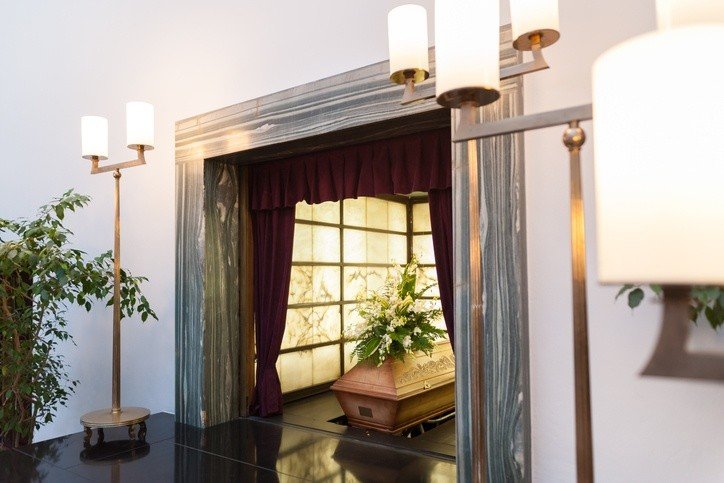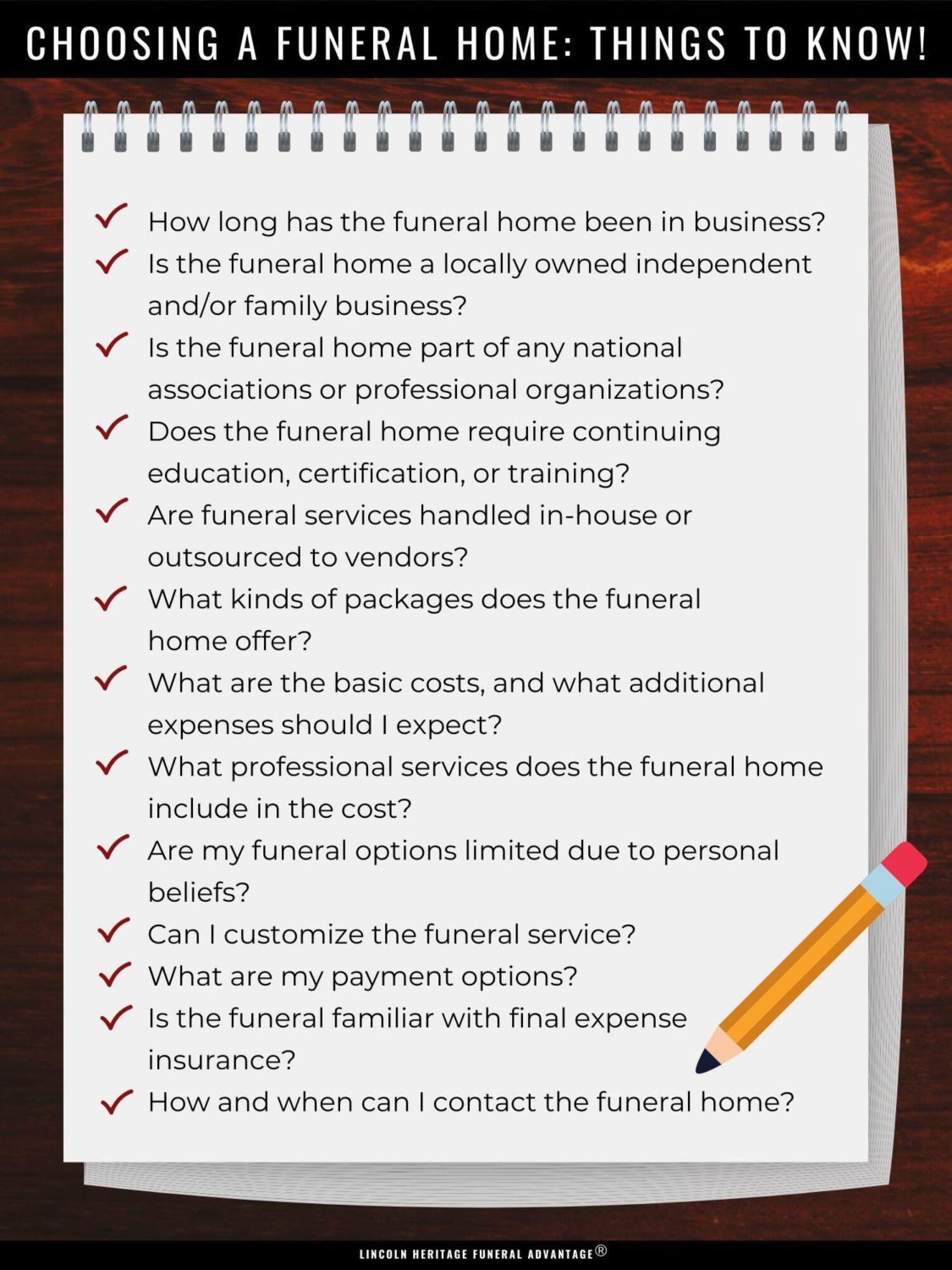Funeral Myths: 10 Questions to Ask When Choosing a Funeral Home

But part of the reason it’s difficult is this: Most of us just don’t know that much about funerals. We tend to interact with them infrequently, and are usually grieving when we do. It’s smart to take a step back when we can, and think deliberately about the information needed to make the best decisions.
Here are 10 important questions to ask when choosing a funeral home.
Table of Contents
How long have you been in business?
Is the funeral home locally owned? Is it an independent business? Independent funeral homes are often owned by a family and may have been in business for generations, which will give you a sense of their commitment to their communities. This is not to say that a national chain cannot provide everything you desire, but if local ownership is important to you, it’s important to ask. In many cases chain ownership won’t be apparent because the appearance of the home, the name, and the personnel remain the same.
Do you belong to associations or organizations?
It’s important to establish if the funeral home is a part of any associations or organizations. Two of the more popular networks include:
Both organizations set professional standards and offer continuing education, certification, and training programs.
Are services handled in-house or outsourced to vendors?
Ask if the funeral services are handled by in-house staff, or if they use outside providers. Some funeral homes handle everything, others do not. It’s possible your costs for some services could increase if the funeral home contracts outside for them.
What kinds of funeral packages do you offer?
A funeral home should offer everything from a basic set of options to an all-inclusive plan, for varying prices. Regardless of the options you choose, all packages will include a fee for overhead and professional services – it can range from about $1,000 to $3,500 – which includes, among other things, responding to your initial request, consulting with you on arrangements, coordinating with the church and/or cemetery, and preparation of official documents.
GET HELP WITH FUNERAL COSTS
Are my options limited due to personal beliefs?
All options, such as embalming, viewing, cremation, and burial should be available to you, including those dictated by your faith or personal beliefs. Embalming – which is the process of cleaning and preserving the body – is not required by law, though a funeral home may require it if you request a viewing or if burial will not be immediate.
What are the basic costs, and what additional expenses should I expect?
Ask your funeral director for a copy of their General Price List, if available (some funeral homes have this online). If prices for such things as caskets and urns aren’t on that list, request a list of those prices as well.
Can I customize the funeral service?
This question is especially important when arranging for military services. A funeral home should be able to take care of any requests you have in terms of memorial services, funeral services, military honors, transportation of family members, obituaries, prayer cards and more. Some arrangements are included and others will require additional cost. Military honors do not add cost.
What are my payment options?
Find out if the funeral home will work with your insurance company, and if they help with arranging for financial assistance (if needed). The funeral home should be able to work with an insurance company regarding existing life insurance policies. In the case of financial need, they can help arrange for accommodations for the least expensive services possible.
Are you or your staff on call 24/7?
The answer should be yes. The funeral director should be able to outline staff procedures in terms of who comes to remove the body, how long it takes them to arrive after they are called, and what you can expect to happen when they get there.
Are you familiar with final expense insurance?
Again, the answer here should be yes, even if the final expense policy – also known as burial insurance or funeral insurance – was not purchased from the funeral home in question. They should be able to outline exactly what happens from the moment they are notified of a death.
Chances are that no matter what you ask, the funeral director has answered it before, many times over. Understanding your options – and aligning those choices with your budget – will keep you from making the mistake of confusing loyalty with cost. Choosing a more expensive option does not mean you loved the person more. In many cases, it simply means you weren’t as informed as you might have been.
Next Steps
Choosing a funeral home is only one of many decisions that must be made. More people are pre-planning and pre-paying their funeral expenses to save their loved ones from having to take care of the arrangements and shoulder the unexpected cost upon their death. Final expense insurance policies provide a death benefit (typically between $5,000 and $20,000) meant to cover burial costs and other end-of-life expenses.
The Lincoln Heritage Funeral Advantage® program includes a cash insurance benefit and access to its Funeral Consumer Guardian Society (FCGS). The policy requires no medical exam, just a set of health questions on the application.




